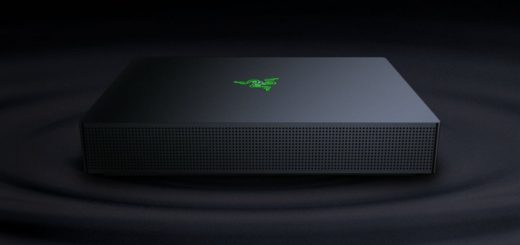Quality Counts

I live in a community generally served by Charter Spectrum for internet services. As I scroll through my social media each day I watch someone new in my community rant about how terrible Charter is. I’m a bit of a self-proclaimed networking fanatic (seriously, I love networking. I used to speed test different brands and types of cables for FUN… eww right? But mmmm… CAT 8 internal network speeds. I’m just loving the speeds of internal network file transfers. I don’t miss CAT 5 at all… anyone remember COAX?) and I usually come here myself to complain about something (it’s been a while I know), but today I thought I’d make a post in defense of Charter, explain why, and tell you how to make your home network not suck, because it probably does.
Let me preface this with the fact I’ve been using Charter since 2003. As an IT professional, I’ve serviced multiple networks on Charter over the years, from our local government fire department, to multiple local real estate companies and quite possibly hundreds of homes. I’ve tailored many networks to many different needs with many different successes and failures. Specifically, I’m going to tailor this post to your home network, which everyone wants to be “set-and-forget.” The problem is we set-and-forget with old habits, and networking has changed dramatically over the last ten years.
Before we be begin, first think about what connects to your home network. It’s not just your PCs and laptops anymore. Add cell phones, iPads, the Playstation, Xbox, Nintendo, Smart TVs, watches, clocks, thermostats, smoke detectors, light bulbs, Google Home, Alexa, Ring, door locks, your vacuum cleaner, your security system, and so on. We’re no longer in a world where there are only a few devices on your home network; you’re always connected. And face it, if you’re using a router that’s more than 5 years old, chances are your router isn’t going to cut it. Have a new cell phone? You might have wireless 6 but can only use it at wireless 5 (aka wireless AC). Much of the world is still stuck with wireless N (wireless 4) and I just cringe at using wireless G. The fact you’re old router might be slow is good. It was purchased with most certainly being intended for fewer connections. It’s time to upgrade. Good news though, upgrading is affordable.
First, understand that Charter is never going to put quality equipment in your home. Charter’s job is to guarantee you the speed (which you’ll see them measure at the wall when they install) and get you connected. And just because you may be getting the 200mb speed they guarantee at the wall, doesn’t mean that’s what the hardware they install will actually go all the time. Remember those combo TVs and VCRs? Or better yet the combo TVs with a DVD player? Shit right? So combo modem and router? Yeah they’re shit too. We’ll get into how the router is also a combination in a bit since the Charter issue device is really a 3-in-1. But simply put, invest in your own equipment.
Consumer routers have done nothing but go up in price. More antennas, more signals, more features, more. more MORE! More isn’t necessarily bad, but it’s not necessarily good either. I found myself buying into the router gimmicks for years until I found myself pretty much never using and/or disabling all the gimmicks and I always switched to alternative firmware because I could never get the full performance out of the stock/factory firmware. Fortunately, you are getting a better chipset (processor) in the more expensive hardware, but if you’re NOT using alternative firmware (Merlin, dd-wrt, tomato, etc.), you’re router is incapable of performing at its potential, meaning, slower speeds for you. Yes, it works better than what Charter gives you, but how well is really up to you. This is a good thing of course, because how you use the internet will be different than your neighbor. Gaming routers. What exactly is a “gaming” router? It has QoS (quality of service) like every other router, which sounds like an intimidating acronym, but it’s just a feature that lets you prioritize bandwidth to applications, or games. Can a consumer router work well? Yes, but not without an excessive amount of tweaking your settings. I’ve personally never found a consumer grade router that didn’t drop so many packets it didn’t have an effect on my speed. This of course, IS NOT Charter’s problem. It’s the consumer’s. And until a few years ago, I was ignorant to anything different than consumer grade routers (aside from professional routers too costly to put in a home). So if you’re going to spend the time making the adjustments necessary to get the performance out of your router….
In comes Mikrotik and Ubiquiti (and similar products). Mikrotik’s hEX RB750Gr3 is so damn fast it was a night and day difference when I switched (pun intended). I actually sent the hEX to my office and upgraded to the RB3011UIAS-RM which was even faster (I upgraded for the PoE (power over ethernet) which Ubiquiti uses, but turns out it’s a different voltage and didn’t work, but it was still faster so I kept it). I wired in two Ubiquiti UAP-AC-PRO-US access points into my 1800sqft home and I get coverage just about everywhere on my 1 acre property, including my detached garage/workshop which is 100+ ft away from the house. This is coverage I’ve never had even with Asus RT-AC5300 or my Nighthawk AC5300; not even close. Neither of which could even cover the majority of my home. Yes, there’s a learning curve to both the Mikrotik router and the Ubiquiti wireless setup, but nothing anyone couldn’t figure out using Google and Youtube. If you’re really worried about the Mikrotik interface being daunting, I’d also recommend doing everything with Ubiquiti, it’s just a bit more expensive. What’s awesome is for the first time in a long time I get very little packet loss (you’ll always have some) and my network feels like a peppy sports car raring to go. If you lookup prices, you may find you’ll actually spend LESS with these products as well. I’m on the same Charter internet my neighbors are complaining about, and I get 220mb down speeds on my 200mb connection all the time. Does Charter go down? Of course, but I honestly can’t tell you the last time my service was down or even spotty. Of course I have my modem and router on a backup battery (Cyberpower and APC are both great) in case the power goes out so our phones stay nice and speedy for a while while everyone else starts congesting the phone networks. 🙂 Will I be upgrading my Ubiquiti wifi5 access points to wifi6? You betcha!
Why the speed difference? Some geeky shit here mixed with logic; Broadcom chips are awesome, which is what’s being used in most consumer routers. Remember the combo-scenerio… combo is still not-so-great. These Broadcom chips are handling the processing power of BOTH the routing AND the wireless. (I honestly wish Broadcom would switch to making a just a routing chip and just a wireless chip and including both on a single consumer router (think Pentium III slot 1), which I think would fix a lot of the speed (and heat) problems; or maybe have the router manufacturer use a Broadcom chip just for wireless and add an ARM CPU for just the routing). The Mikrotik only does routing on basically the same dual-core processor as the Broadcom. Then each of Ubiquiti’s access points each has one of its own chipsets, which does its own processing. Similar might be the Netgear Orbi or other “Mesh” router setups, but the main hub is still processing both, whereas the Mikrotik/Ubiquiti are solely doing their own jobs, hence the speed. Further, a hard CAT cable to each access point is going to provide less errors and faster throughput than a mesh wireless setup in any scenario.
On the subject of modems, yes you should own your own modem. I’ve found it entertaining that in the past that Charter’s own installed combo modem/router isn’t on their own approved list of modems. I bought a Netgear CM600 in January 2017 which is on Charter’s approved up to 400mb list. Yes, it will probably take a phone call to Charter to setup your modem on their network; they need your modem’s MAC address to assign it instructions/settings. When COVID hit and we consciously made the decision to homeschool two of our children this past year, 90% of which was online, I considered upgrading to 400mb. We would easily have the bandwidth for four of us simultaneously playing Warcraft while streaming video on our phones and tablets, having no problems while my wife was working downloading files and my youngest was watching 4k Netflix. This really serves as testament to me on how important your hardware is to be able to handle that much of a load without so much as a hiccup. So I found we didn’t need the upgrade and I stuck with our 200mb service. Particularly with two of my kids going to college and my two youngest going back to school as well, I don’t foresee an upgrade for us anytime soon. I’ll certainly upgrade my modem if I see it ever becoming the bottleneck (the point that slows everything down). Charter does offer 200mb, 400mb and 940mb speeds, although as I mentioned above, I’m not sure anything above 200mb is necessary for a home user, but more is always better right?
If you love your current hardware and you feel you’re getting the internet speeds you’re paying for, great! Don’t switch. Ignore my wall of text here and shoot me a message on how full of shit I am. Who doesn’t love those? 😉
If you’re not happy with your speeds, chances are your hardware just needs some attention. An investment in some quality hardware might make all the difference.


